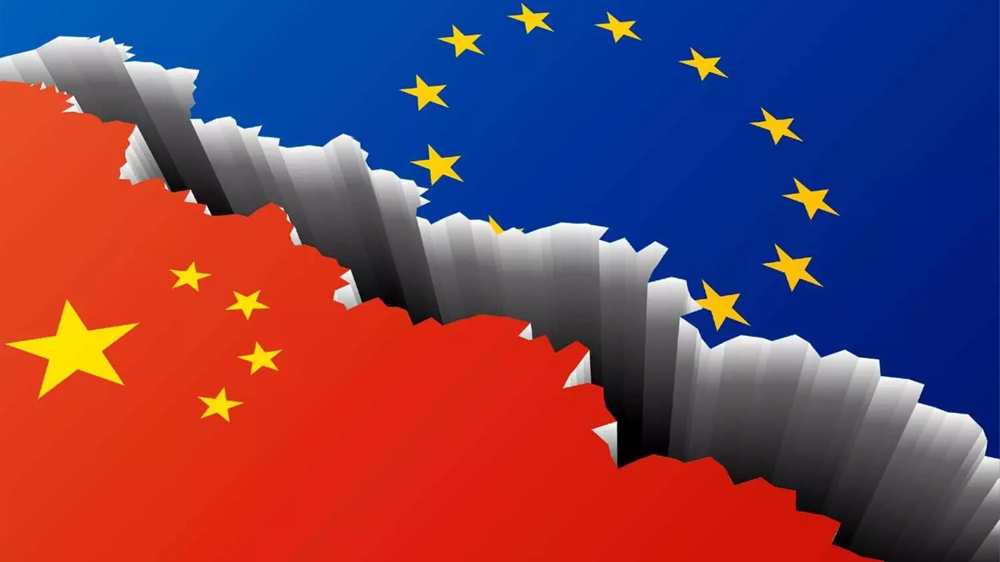On the 4th of October, when members of the European Union voted in favour of imposing tariffs of up to 45 per cent on Chinese Electric Vehicles (EVs) for at least the next five years, they did not just simply take a step to “de-risk” from China and/or put their policies in line with Washington’s.

A Divided Europe
The British newspaper, Financial Times, described Germany as the main “culprit” for its vote against EU’s tariffs. It is almost as if Germany is heading towards a de facto ex-communication from the bloc vis-à-vis China. Those who voted for imposing tariffs feel betrayed. It is also as if exercising autonomy in the EU is akin to committing an unpardonable criminal act. It is also as if national interest no longer matters in the EU.
As it stands, Germany’s decision to oppose tariffs has everything to do with its national interests. Germany is one of the biggest investors in China from the EU, with the German auto industry a key player in the Chinese market. If Berlin’s raison d’eter for voting against tariffs was motivated by its so-called “selfish” interest, so was the decision of those who voted for these tariffs. They were also trying to protect “their” interests – interests that did not necessarily converge with German interests in this case. For instance, the EU officials claim that the purpose of these tariffs is to protect the local auto industry. Germany, however, thinks that this decision will do a lot of damage to its own auto industry. Germany’s auto industry union, VDA, said that “the value of passenger car exports from Germany to China last year was more than three times the value of imports from China, and the value of exports by component suppliers was four times as much as the value of imports”. Clearly, Germany is facing no threat from China insofar as it has the overall trade balance in the auto industry in its favour. In other words, Germany sees Beijing posing no risk.
Other countries, such as Hungary, that voted against tariffs followed the same logic. In 2023, Hungary received nearly half of the Chinese foreign direct investment (FDI) on European soil. This was more than the investment that Germany, France, and the UK received collectively. Why would Hungary have voted in favour of tariffs?
Regardless, it is no longer simply the EU that is at war with China. Germany and France equally are at war with each other. The German chancellor did not attend the meeting hosted by France’s Macron in May when the latter met China’s Xi alongside the EU president, Ursula von der Leyen. Now that Germany has not voted for tariffs means that it will be able to avoid Chinese retaliation on countries like France and Spain, both of which have deep export relations with Beijing.
The EU Loses More Than It Gains
In other words, if the EU’s bid was to push back against China as a united front, this effort has already backfired. Instead of “de-risking” ties with China, the EU has ended up exposing its divisions – something that comes as a relief for Beijing insofar as these divisions will continue to affect the bloc’s ability to hurt Chinese interests too much. In other words, if tariffs were to be a meaningful step forward in accomplishing the so-called “de-risking”, it has already put Europe at war with itself. This is more of a loss than a gain.
For instance, if the EU really wanted to compete fairly with China, it not only needs to produce cheaper EVs but, more importantly, it also needs to achieve economies of scale (so that it can actually lower the production cost). For the EU to do this, it needs to create a single market to integrate its resources and match them with China. But creating a single market is a lot easier said than done. This has become even more difficult in the wake of geoeconomic fissures across the continent becoming public now more than ever.
Trouble for Washington
A divided EU is equally a challenge for Washington, comprising its hopes for developing a global anti-China coalition under its leadership. The divided vote signals Washington cannot simply have its cake and eat it too. If it pushes European states against their national interests, they are bound to fight back and assert their national interests. Therefore, a majority in the EU may have followed in the footsteps of the US and Canada in imposing tariffs, but this is far from a watershed. Instead, it exposes the limits of Washington’s influence on the continent’s foreign and economic policies; it exposes how fragmented the bloc is; and it shows that this fragmentation stands to increase in the near future primarily because of Chinese retaliation, especially if it comes with less export. It could be a reality check for many in Europe. For Washington, it also means that more stringent policies from the EU are unlikely. The fact that 12 states abstained means they can move in favour of not voting against China at any time.
Salman Rafi Sheikh, research analyst of International Relations and Pakistan’s foreign and domestic affairs, exclusively for the online magazine “New Eastern Outlook”
